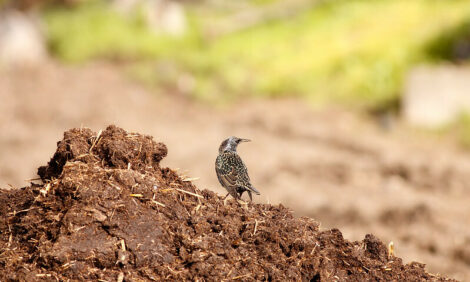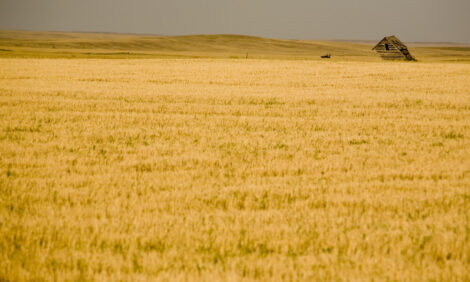



BPC Claims RSPCA Duck Campaign Incorrect, Misleading
UK - The RSPCA campaign is making incorrect claims about the actual rearing standards for British ducks and is seriously misleading the public in its attempt to promote its own Freedom Foods brand, according to the British Poultry Council (BPC).This is disappointing from a usually respected body like the RSPCA with whom British duck producers have been working closely, says the BPC.
The Duck Assurance Scheme requirements for the provision of water for ducks reared indoors and the RSPCA Freedom Foods scheme both require the ducks to have access to open water to be able to dip their heads under, to preen and to allow the ducks to toss water onto their feathers for conditioning. This bathing is necessary for the ducks’ general health and particularly for good eye and nostril condition.
The Duck Assurance Scheme standards further specifies that where drinking water is provided by nipple drinkers that additional bathing water must be provided and that troughs, wide-channel type bell drinkers, baths or showers are permissible to provide this. Ducks have a greater range of water facilities with 20 per cent more availability in the Duck Assurance Scheme compared with the RSPCA standards.
According to the BPC, the RSPCA standards do not mention bathing or any requirement for full body access to water. The RSPCA scheme gives minimum measurements of 20cm width and 10cm depth for troughs containing open water but requires these to be used to provide both drinking and bathing water.
British duck companies have worked closely with welfare researchers at Oxford and Cambridge universities, the RSPCA and Defra on the water preferences of ducks. The Duck Assurance Scheme Standards reflect the published findings of this research and the experience of the duck producers.
It is disingenuous of the RSPCA to imply that ducks in the UK are raised without access to bedding or bathing water simply because there are no specific legal rules for duck production. In fact the ducks reared in the UK are all provided with fresh litter as bedding and this is topped up on a daily basis. Nipple drinkers can be used for provision of clean drinking water but sufficient open water sources must also be provided for the bathing requirements. These are specified requirements in the Duck Assurance Scheme and the RSPCA knows this, says BPC.
Separate nipple drinkers have the advantage that the drinking water does not become dirty from the bathing activities and is not spilled or leaked on to the bedding so can be deployed throughout the house and the water remains clean and drinkable.
While there is no scientific evidence that provision of windows is a welfare benefit to the ducks, the Duck Assurance Scheme Technical Advisory Group is considering the need for research on this topic.
Duck welfare standards have been upgraded for all ducks in the UK reared under the Duck Assurance Scheme as the duck producing companies have taken on the findings of scientific research. Shoppers can be assured that the high standards required by the Duck Assurance Scheme properly provide for the health and welfare needs of ducks reared in the UK.
However the RSPCA has said that water access for ducks, through the Duck Assurance Scheme (DAS), only gives ducks enough water to dip their heads under and to preen and wash their feathers. The RSPCA believes that ducks should have full body access to water and this is possible for ducks reared on Freedom Food approved farms.
The welfare group also sais that ducks are water birds and it is unacceptable that access to bathing water is not a mandatory requirement of the Duck
Assurance Scheme.
"The best way for consumers to make up their own mind on whether they think the Duck Assurance Scheme’s standards go far enough in providing ducks with a suitable form of bathing water is for the duck industry to allow their farms that are representative of those conforming to the standards to be filmed and for this to be shown publicly," said RSPCA.
Further ReadingGo to our previous news item on this story by clicking here. |








